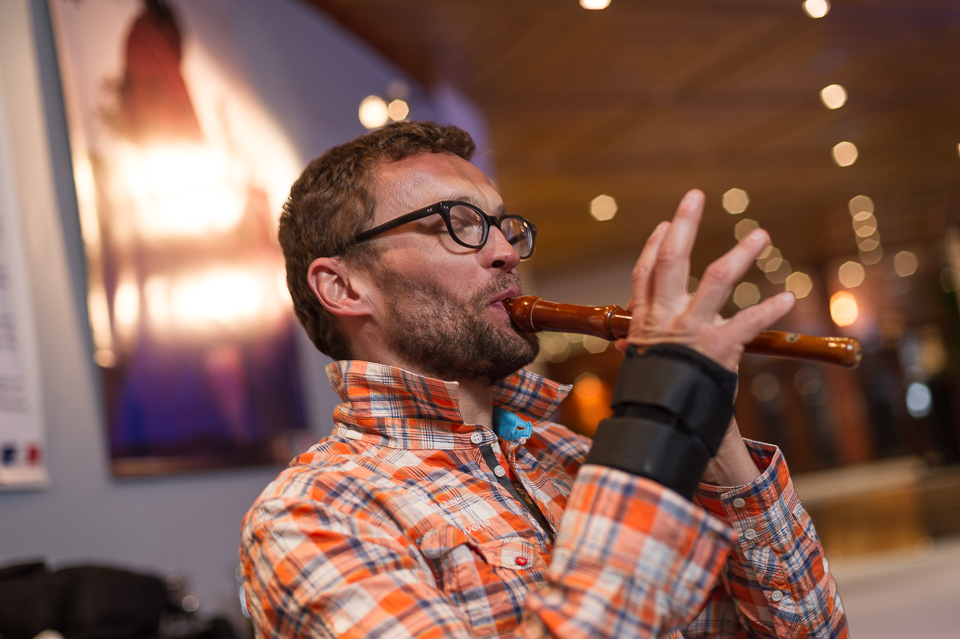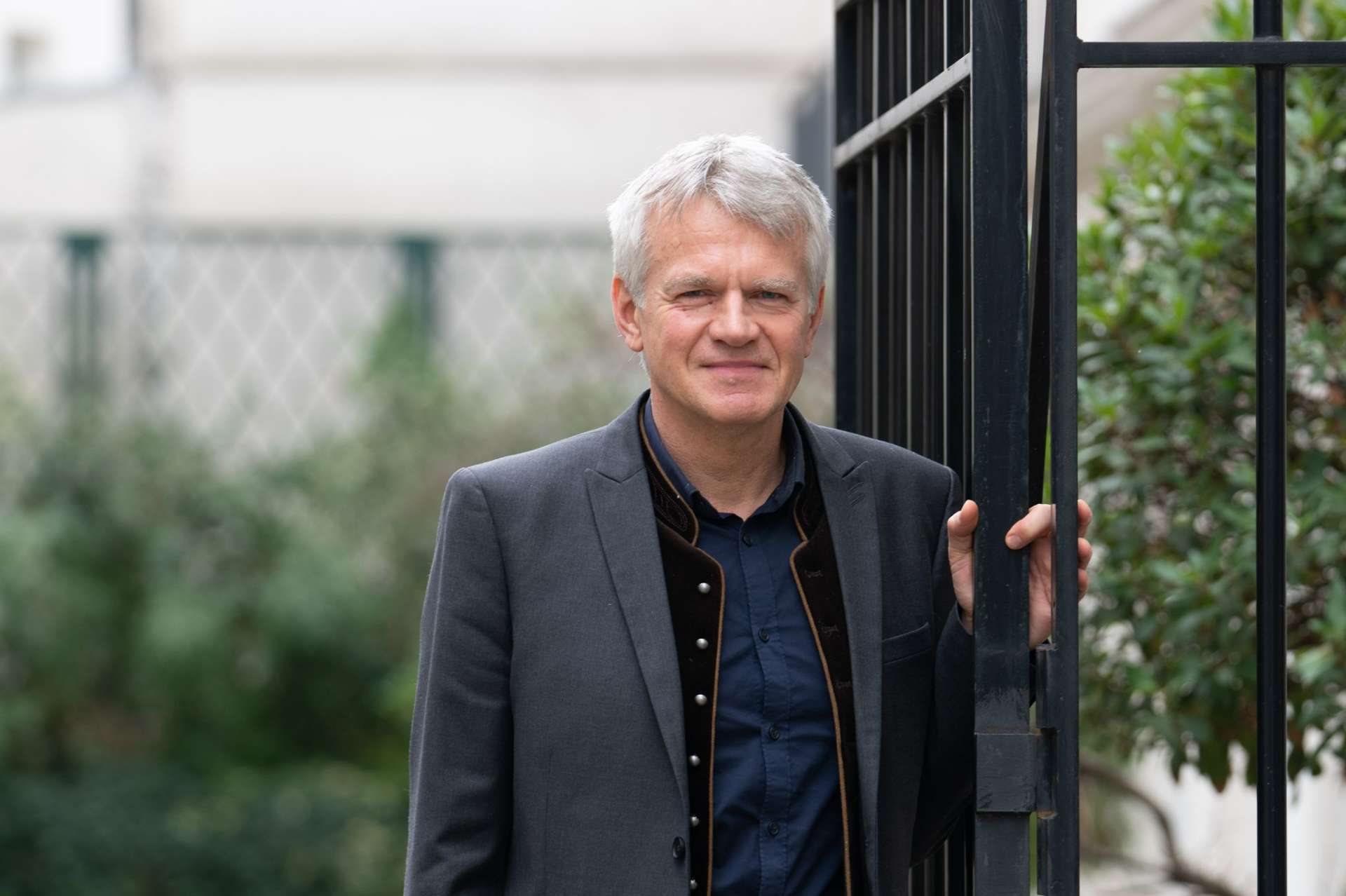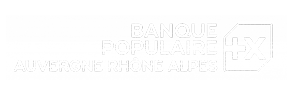2007 - Previous edition
Edito
Movies
“Amazonian Vertigo”
52′
Director: Evrard Wendenbaum
Production: Migoo Production
“Fatima’s Hand”
38′
Director: Jeans Hoffmann
Production: Cleonice Comino
“Himachal Experience” Inédit
52′
Director: Yan André
Production: Bullitwood Production Yan André
“La lumière de l’Himalaya”
70′
Director: Michael Brown
Production: Dave D’Angelo
“La grande parenthèse”
52′
Director: René Van Bever
Production: RVB Vidéo
“Altiplano, le rêve partagé”
28′
Director: Anny Bronne
Production: Carisport, Ville de Grenoble, Free-Mouse
“Asiemut”
56′
Director: Mélanie Carrier, Olivier Higgins
Production: Mélanie Carrier, Olivier Higgins
“L’ile rouge, pas à pas”
55′
Director: Cécile Clocheret
Production: Morpho Films Tatiana Maksimenko
“Ténéré Solo, le désert bleu d’un bout à l’Autre”
56′
Director: Pierre Schmitt
Production: Association Pargaïa
“Le pianiste de la Sierra Madre”
52′
Director: Judith Haussling, Alain Tixier
Production: Aller Retour Productions
“Pururambo”
56′
Director: Pavol Barabas
Production: K2 Studios
Awards
Aigle d’Or de l’Aventure – Grand Prize of the festival
“Pururambo”
Director: K2 Studios
Production: Pavol Barabas
Public Grand Prize – Spectators’ favorite
“Asiemut”
Director: Mélanie Carrier, Olivier Higgins
Production: Mélanie Carrier, Olivier Higgins
Alain Estève Prize – Technical qualities of the movie
“Amazonian vertigo”
Director: Evrard Wendenbaum
Production: Migoo Production
CMC Hope Prize – Encouragement prize for filmmaking
“Asiemut
Director: Mélanie Carrier, Olivier Higgins
Production: Mélanie Carrier, Olivier Higgins
Planet Cinematographic Achievement Award
“Fatima’s hand”
Director: Jens Hoffmann
Production: Cleonice Comino
Ceremony' master

Sylvain Tesson
Sylvain Tesson, member of the Society of French Explorers. A geographer by training, he divides his life between long-distance travel and writing. Its preferred regions correspond to the heart of immense Eurasia: Afghanistan, Siberia, Mongolia, Tibet. He publishes reports in the magazine press and has written around fifteen works including: Small treatise on the immensity of the world (Equators), Praise of wandering energy (Equators), News from the East (Phébus), the Axis of the Wolf (Robert Laffont).
His latest collection of short stories “A Life to Sleep Outside”, published by Gallimard in 2009, won the Goncourt short story prize and the Grand Prix de short story prize from the Académie française. Recently he published with Gallimard an account of the engagement and combat of Alpine hunters in Afghanistan: “High tension” (Gallimard).
He is the author of documentaries devoted to discovery and adventure broadcast on France 3, Voyage and France 5.
Jury's president

Olivier Weber
Olivier Weber is a writer, reporter, diplomat and former war correspondent. European and Mediterranean Book Prize, Adventure Prize, Amerigo Vespucci Prize, Joseph Kessel Prize, Albert Londres Prize.
He studied economics in the United States, at the University of San Francisco (Business Administration and Management), and in France, at the University of Nice (DEA, advanced studies diploma), anthropology at the Paris School of Advanced Studies in Social Sciences (DEA), international law (doctorate), Indonesian and Malaysian at the National Institute of Oriental Languages and Civilizations.
Entering journalism after a few years in teaching and financial analysis, he left for California in the footsteps of Jack London. Having become a war correspondent in Africa and the Middle East for The Sunday Times (United Kingdom), The Guardian and Libération, he also carried out investigations for Les Nouvelles littéraires and Globe. He was then appointed senior reporter at Le Point magazine.
He has covered several conflicts, including the war in Afghanistan, the Tian An Men massacre in Beijing, Kurdistan, Eritrea, Cambodia, South Sudan, Iraq, Western Sahara, Chechnya, Algeria , the uprisings in Burma..
Marc Thiercelin
Marc Thiercelin
Bored at school, Marc Thiercelin entered the Boulle school at 14, 3 years of cabinetmaking, marquetry and drawing; zero defects required. At the age of 15, he built his first house, 70m2, all in wood and recycled materials… A few years later, he started sailing. At 20 years old, he already manages a nautical center and 6 employees. He is also a competitor in the French team.
His career is very rich, including 5 solo races around the world, including 4 Vendée Globes; 4 tours of the Antarctic, 22 deckchairs, 7 solo trips to Le Figaro and 5 crewed sailing tours of France… In all, 700,000 km traveled on all oceans. From these experiences, Marc learned a lot of lessons: willpower, courage, the desire to surpass himself despite adversity, questioning himself to continue moving forward and improve. He is an entrepreneur who has a taste for risk and the unknown. And in addition to being a talented sailor, he is also an experienced teacher who has passed on his love of the sea and his knowledge for more than 15 years.
In 2018, Marc Thiercelin has a new project: an intelligent FlyBoat. A Giant racing Trimaran that flies, featuring artificial intelligence at all levels; boat led by augmented sailors. It is a 360° disruptive project: 1st traveling marine incubator carrying strong innovations, open to different audiences, all financed in a very original way; a real revolution in professional sailing.
Anne Quéméré
Anne Quéméré
Breton by birth, blood and heart, I grew up along the Atlantic coast, my feet in the sea water, my head in the sea spray guided by an experienced sailor father.
With my baccalaureate in hand, I joined the University of Rennes and quickly realized that the dreary and dull life of the amphitheaters did not quench my thirst for discovery and was gradually stifling my dreams of adventure. Determined to escape the beaten track, I flew to North America and settled there for around ten years, working as a tour guide and traveling throughout the country.
But I miss the sea… And navigation much more. In 2000, I returned to the country and found myself aboard a skiff, an oar in each hand, at the Brest maritime festivals. It clicks, that’s where I belong. One thing led to another, a desire a little stronger than the others, a will more powerful than reason, and here I am embarked on committed journeys and for some, totally innovative and experimental.
2002 and 2004 were two years punctuated by two transatlantic rowing races, solo and without assistance. One by the trade wind route (Canary Islands – Antilles) the other by the northern route (United States – France). They both open the door to other horizons for me. The adventure virus has been inoculated, it will never leave me.
During the summer of 2006, I set off again for the North Atlantic, but this time, aboard a small prototype called a “kiteboat” powered only by a traction wing. I thus achieved a world first in 55 days, a first that I repeated in 2011 on the Pacific Ocean, between Peru and French Polynesia, always alone.
During the summer of 2010, invited to join an expedition to Greenland called “The Great Drift”, I did not hesitate for a single second. In the company of the Robinsons des glaces team, I confront for the first time this world of ice cream that has always fascinated me. A universe that is demanding if necessary and yet so captivating, I make a promise to myself to return there one day.
It was during the summers of 2014 and 2015 that I reconnected with the Arctic world when I set off from Tuktoyaktuk, a small hamlet located in the Northwest Territories in Canada, aboard a kayak with the aim of cross the legendary Northwest Passage. Twice, bad weather conditions forced me to turn back but in no way dampened my enthusiasm.
In June 2018, the “Arctic Solar by Icade” expedition allowed me to sail alone through this legendary passage. On board an innovative prototype powered solely by solar energy. For more than four weeks, I walked through the heart of a complex and risky labyrinth that even held me prisoner. That summer, the Northwest Passage was blocked by ice and remained closed to all navigation. But the experience is not in vain, since this solar navigation allowed me to navigate more than 800 kilometers at a speed of 4 to 6 knots (around 10 km/h).
My “professional” choices are above all a philosophy of life which offer me a real confrontation with reality. In a world that is asphyxiating a little more every day, they have become a vital necessity for me.
Surrounded by a team of enthusiasts, we think together, carefully prepare and organize each of my expeditions. Back on land, I take advantage of festivals, conferences or seminars to share my experiences and lessons and discuss worrying subjects such as the preservation of the seas and oceans.
While dreaming of new devices, I follow my intuitions and let that little inner voice speak that too often we silence. So, patiently, the story is woven…
Régis Belleville
Régis Belleville
Originally from Dijon, Régis Belleville was born on December 5, 1966. Explorer, filmmaker and writer, he discovered very early what would be his passion: Africa. His father worked in higher education in Algeria when he was only eight years old. Back in France, he only dreams of returning to Africa. Enlisted in the air force, he learned photography before being transferred to a satellite image exploitation unit in Paris.
Wishing to devote himself to his passion, he abandoned his career as a NCO and embarked on multiple experiences and travels (humanitarian actions, reports, conveyors and even vehicle traffic, etc.)
In 1996, when he participated for the first time in the international festival “Les Ecrans de l’Aventure”, he decided to chart his own path as an explorer.
In 1998, he set out alone on the trail of an ancient caravan trade trail between the Maghreb and black Africa.
In January 2002, he connected, with his friend N’Taha, Chinguetti and Timbuktu by crossing the Majâbat al-Koubrâ, the largest hyper-arid region of the Sahara.
At the end of this journey, Régis Belleville was admitted to the Society of French Explorers, and received the “Adventurer of the Year 2002” prize awarded by the National Geographic Institute and the European Raid Guild.
This trip is the origin of his first novel Beyond the Sands. Today he is publishing The Devil’s Gold, a work which looks back on the crossing made on the caravan trade trail.
Now included in the Annals of the great surveyors of the Sahara, Régis Belleville has new expedition projects.





